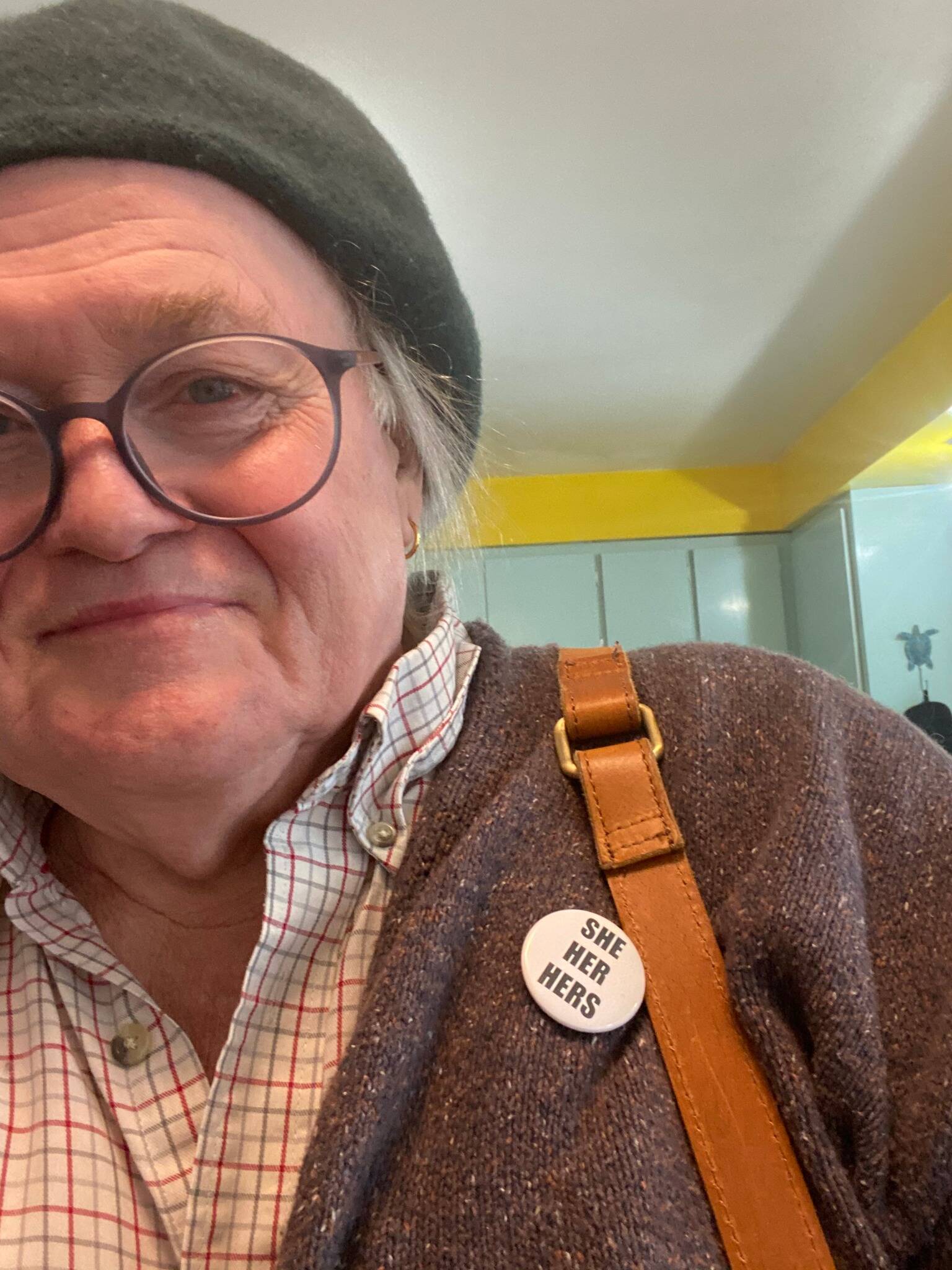By Jane Hale
“It’s fascinatin’ to observe what the mirror does
But when I dine it’s for the wall that I set a place.”
— Richard Hell and the Voidoids, “Blank Generation.” (1976)
I swim at the pool three or four mornings a week, so I bought an underwater MP3 player and earphones. Now, I can swim to music. This morning I’m listening to Richard Hell and the Voidoids. The first song on is their 1976 punk masterpiece, “Blank Generation.”
Boomers, Millennials, Gen X’s, Zoomers, whatever—Richard Hell is having none of that nonsense. “I belong to the blank generation,” he sings. He’s not even going to bother naming it, and sometimes he even leaves the “blank” blank. “I belong to the _____ generation.”
The song rejects the tantalizing but immobilizing self-regard of labels and embraces instead a free impulsiveness. “I can take it or leave it each time.”
I wish you could hear the song right now, as you read this. Put it on if you can. It’s got a wild guitar solo by the late Robert Quine where you can hear the future of Rock & Roll in twelve bars.
The song’s rejection of self-consciousness hits home for me right now. I feel acutely self-conscious as I try to openly explore who I am. Having just come out publicly as trans, I’m trying to be considerate of others — especially at the pool, where I now use the family locker room, with its private changing chambers. I don’t want to make anyone feel awkward.
And I’m wearing a tank top swim shirt — some of the effects of estrogen therapy are becoming apparent — and I’m the one feeling awkward.
Jean-Paul Sartre has a famous — and famously misunderstood — line at the end of his play “No Exit,” “Hell is other people.” He is talking about being self-conscious: we feel the gaze of others objectifying us, labeling us, and then we begin to see ourselves that way, as objects, mere labels, and lose that impulsiveness the Voidoids sing about. Hell is the self-consciousness that prevents me from being my spontaneous self.
But what is the self, really, that makes self-consciousness a problem?
Danish philosopher Søren Kierkegaard sees the self as a constantly changing internal palimpsest of conversations. What he actually says, in typically incomprehensible philosopher-speak, is this: “The self is a relation relating itself to itself in the relation.”
(Seriously. That’s what he says. I always get the feeling these European philosophers are talking to themselves.)
What I think Kierkegaard is getting at is a view of the self not as an entity but as a process, an action, an act: not something we are, but something we do. We experience the self as an ongoing conversation always in the act of conversing with itself about itself.
The self-consciousness rejected by Sartre and Richard Hell interrupts that free, spontaneous conversation. It makes me look at myself objectively, that is, as an object, not the continuous flow of impulses I generally perceive as my “self.” Feeling self-conscious at the pool, I see myself as I imagine others see me: just some weird guy who’s wearing a top in swimming.
(Okay, I hear you. I am some weird guy wearing a top in swimming. Very funny. But I only see myself that way when I see you seeing me that way.)
Gender seems to me a part of that continuous and spontaneous conversation that is the self. And Sartre warns against identifying too closely with that self, with one’s own ego, which he calls acting “in bad faith.” His example is the self-conscious waiter who always tries to act the way he thinks waiters are supposed to act. That’s true for all the identities we wear: Christians who always act the way they believe Christians are supposed to act; or atheists who always think the way they think atheists should think; or writers who always think of themselves as “writers.”
So, too, the men who always strive to be “manly” and women who strive always to be “feminine.”
These self-conscious gender stereotypes simply limit our freedom to be fully functioning selves. If you’re watching yourself, you’re not being yourself. If you’ve ever been in a relationship where you felt like you’re always walking on eggshells to avoid bruising someone’s ego, it’s like that—only it’s your own ego. Objectifying yourself with some stereotypical gender role leaves no room for what Simone de Beauvoir calls “the élan of spontaneity.”
Listen: You’re not going to see me wearing a dress and makeup. I’m not throwing off one stereotype simply to don another. I see gender as a continuous navigation through a complex set of variables that are cultural, social, and biological.
And sociobiological too, a la the late Harvard myrmecologist Edward O. Wilson. My female poodle Molly sometimes tries to mount my male poodle Hugo, just to show him who’s boss. What’s that but innate social behavior?
Or maybe it was the “grooming” she received at the dog “groomers.” She certainly doesn’t learn that stuff at home.
• Jane Hale spent her first 69 years writing as Jim. She is a longtime Juneau resident. “Coming Out” is a biweekly column. It appears on the Empire’s Neighbors page.

